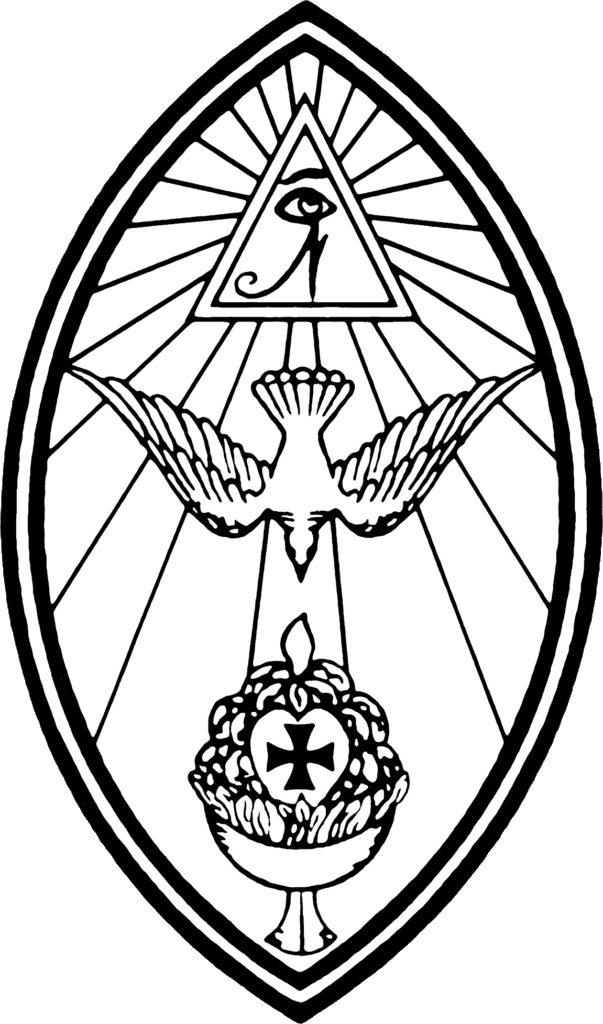NOTOCON VII Keynote Address: Unity Uttermost Showed
Address delivered by National Grand Master General Sabazius X° to the Seventh National Conference of the U.S. O.T.O. Grand Lodge
Saturday evening, August 8, 2009 e.v.
Seattle, Washington
Brothers and Sisters,
Do what thou wilt shall be the whole of the Law.
[Thanks, congratulations, news updates and committee reports omitted.]
The concept of unity or oneness brings with it, like a shadow, the concept of multitude, division, or manyness. The atomic unity of Hadit expands to manyness when encompassed by the vast, all-inclusive Unity of Nuit. The unity of the individual citizen becomes multitude when placed in the context of the Unity of the State. The unity of an individual action, such as tying a shoelace, is one of a myriad of individual actions and events that together constitute an individual’s life. So the concept of Unity, apart from the concept of The Ultimate Unity, varies with the size of our magnifying glass. And, as Crowley pointed out a few times, the concept of The Ultimate Unity is an illusion brought about by the polarity of Zero and Two. Unity, then, is a matter of perception, dependent on scale and context.
This polarity of the Great and the Small, the divided and the undivided, unity and manyness, plays a significant role in mysticism of all sorts, the goal of which is often expressed as union of the individual life with the universal life.
[hilarious joke omitted: if you want the jokes, you have to attend NOTOCON]
With respect to our Thelemic concept of True Will–in its practical sense–we are all familiar with Crowley’s analogy of a nail from De Lege Libellum: “Here Nature herself be your preacher: for in every phenomenon of force and motion doth she proclaim aloud this truth. Even in so small a matter as driving a nail into a plank, hear this same sermon. Your nail must be hard, smooth, fine-pointed, or it will not move swiftly in the direction willed. Imagine then a nail of tinder-wood with twenty points–it is verily no longer a nail. Yet nigh all mankind are like unto this. They wish a dozen different careers; and the force which might have been sufficient to attain eminence in one is wasted on the others: they are null.”
Now, most human beings are a bit more interesting than your average nail, but that’s a topic for another talk. Here we’re considering the idea that you can truly excel at something you’re good at if you apply yourself to it and cut out as many distractions as possible. This is really just common sense. However, it is conditioned by context.
A person who wishes to live truly independently, free from all foreign influences, free from all the conditions that might be imposed by other individuals on his or her life, is a person whose existence will indeed be focused on a single task: survival. Here is a person who will need to spend the bulk of his or her time maintaining adequate levels of food, water, clothing and shelter, because these things will not be provided by others. The lives of such individuals, engaged as they would be in much the same day-to-day activities out of sheer necessity, would tend to appear to an observer as being rather similar. Paradoxically, extremity in the search for individuality would lead to a particularly dull form of conformity.
Being a member of a group or society, on the other hand, although it involves giving up a certain level of self-reliance and independence, and thus of purity of individuality; provides a context in which the uniqueness of the individual can manifest. Individuals can specialize, labor can be divided, individual interests and preferences can be allowed to develop. Joint effort is often more efficient that individual effort, especially for large tasks, and the prosperity resulting from such efficiencies can result in the leisure required to pursue the discovery and cultivation of one’s particular talents.
Isolation requires your nail to be hammered into a plank—society allows it to be used to carve, scribe, engrave, impale, or be applied to any of a multitude of purposes limited only by imagination.
Now, just as the concept of unity is conditioned by scale, I think we can see that Crowley’s nail analogy is also conditioned by scale, as well as by time. Most individuals aren’t born knowing the nature of their one true career in life. Lacking some kind of revelation, achieving such knowledge usually requires a quest involving a great deal of experimentation, trial and error. In fact, the knowledge of one’s true purpose can take an entire lifetime to achieve. Even when such knowledge is achieved, it may be that many stages are involved in accomplishing this purpose, many prerequisites are required, and many seemingly-unrelated tasks and disciplines can increase the value of its accomplishment.
The nail principle can, however, be applied effectively to any individual task to which you decide to set your mind, from tying your shoelace, to achieving Samadhi, to promulgating the Law of Thelema, to keeping your local dues current.
I consider the Order to be a special case of society—a voluntary association of individuals that share similar views regarding individuality. We recognize and celebrate each other’s individual uniqueness—at least when we are at our best—and we work towards seeing to it that society at large at least tolerates it. We are, in a way, united by this common interest in individuality, and this unity is expressed and fostered by our rituals; by our group rituals in particular, in which we participate as if we were each an organ in a great body. I have definitely felt this sense of unity most strongly when acting in concert with my brothers and sisters to jointly achieve a particular ceremonial result, my mind focused, like a shining nail, on my prescribed and uniquely individual role, with the knowledge that the minds of my brothers and sisters are focused in the same way on theirs. And so do we paradoxically express our unity, and our individuality. Let us apply this principle to all that we do together, nationally and locally. For, as we read in Liber Librae, “if a chance thought can produce much effect, what cannot fixed thought do?”
Love is the law, love under will.

